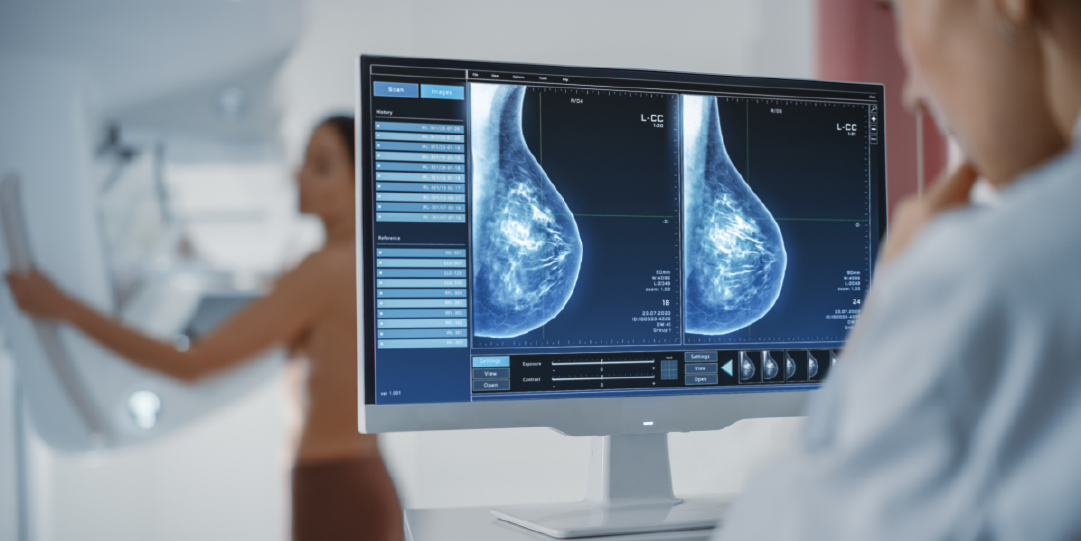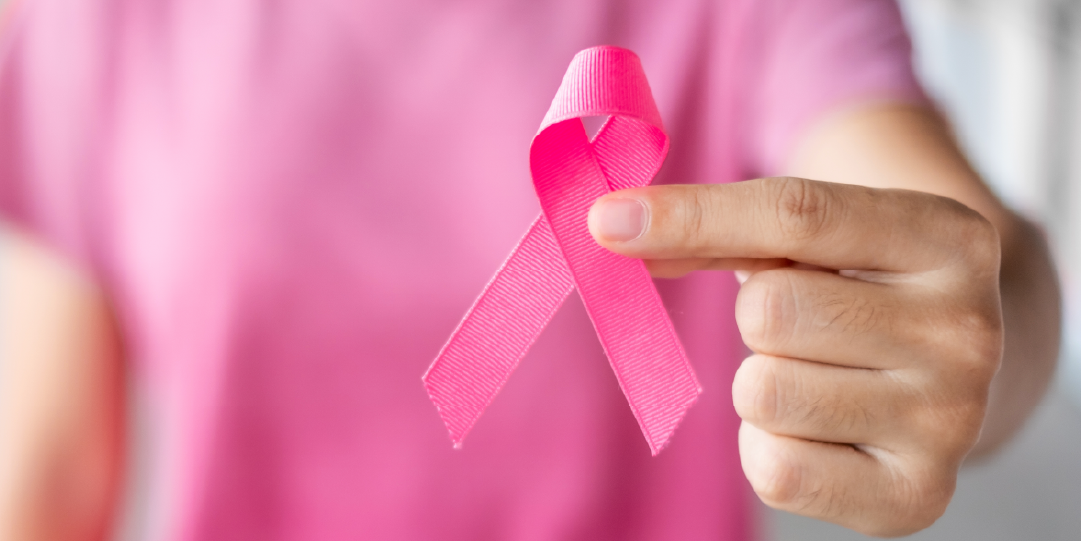It is crucial that the public stays informed about the disease, as breast cancer affects about 264,000 women and 2,400 men each year. With that being said, our team put the following information together to keep you aware of breast cancer.
What is Breast Cancer?
Cancer occurs in the body when abnormal cells divide uncontrollably, causing damage to body tissue. Breast cancer happens when the cancer is localized in the cells of the breasts.
The breast is made up of three parts. The lobules are the glands responsible for producing milk, and the ducts carry the milk to the nipple. The connective tissue is the surrounding fibrous and fatty tissue.
Breast cancer will typically be in the ducts or lobules, resulting in the two most common kinds of breast cancer: invasive ductal carcinoma and invasive lobular carcinoma. Both can lead to the spread of cancer to the rest of the body through blood and lymph vessels.
Warning Signs and Symptoms
Breasts come in all shapes and sizes, and the reality of breast cancer is that different people experience different symptoms.
There are some common signs that you can be aware of, including:
- New lumps in the breast, armpit, or near the collarbone
- Irritation or swelling of the breast
- Pain in any area of the breast
- Skin dimpling
- Dry, flaking, or thickened nipple or breast skin
- Nipple retraction
- Nipple discharge
- Change in size or shape of the breast
Visit your doctor as soon as possible if any of these conditions occur without another discernable cause.

How Breast Cancer is Diagnosed
One way to reduce the severity of breast cancer is to catch its development early. That means you should have annual checkups and potentially breast cancer screenings with your healthcare provider if they recommend one.
The U.S. Preventive Services Task Force recommends breast cancer screenings for women aged 50 to 74. Women in their forties should speak with their doctors about how often they should get a mammogram, an x-ray examining changes in breast tissue. They are an effective tool because they can often detect breast cancer early, even when it’s small and before a lump can be felt. This time is when it is easiest to treat breast cancer.
Mammograms also show how dense your breasts are; having a higher density means a higher risk of developing breast cancer. Scientists are still trying to figure out why this is the case, but the good news is that having dense breasts does not mean you are more likely to die from breast cancer.
Additionally, you may have to undergo additional tests, such as a breast ultrasound or a breast magnetic resonance image (MRI), if you are concerned about breast cancer.
How to Treat Breast Cancer
Once you have received a diagnosis of breast cancer, you may undergo a couple of treatment methods. It will depend on the kind of breast cancer you have and how far it has spread.
Surgery
Surgery is a common part of breast cancer treatment, though it still depends on your individual situation. It may be conducted to:
- Remove as much cancer as possible from the breast. This is also known as a mastectomy.
- Discover if the cancer has spread to the lymph nodes under the arm.
- Restore the breast’s shape after the cancer has been removed. This is also known as breast reconstruction.
- Relieve some symptoms of advanced breast cancer.
Before surgery is conducted, your doctor and surgeon will consult with you to ensure you make an informed decision.
Chemotherapy
Chemotherapy is a treatment method for most cancers. The machines are designed to shrink or kill cancer cells, and the anti-cancer drugs can be taken through pills, injected in the veins, or both. For breast cancer, patients often need to be given an IV over a few minutes or an infusion over a longer duration of time.
Hormonal Therapy
Hormones serve as the chemical messengers of the body, and they affect cells and tissues throughout the body in the bloodstream. Estrogen is the hormone responsible for developing and maintaining biological female sex characteristics, and progesterone is the main hormone for the menstrual cycle and pregnancy.
Estrogen and progesterone also promote the growth of some breast cancers. Doctors test samples of tumor tissue to test whether a patient has hormone-sensitive breast cancer, and if so, hormonal therapy blocks the hormones’ production and slows or stops the growth of the tumors.
Biological Therapy
It is sometimes possible to use your body’s immune system to fight breast cancer.
The three main methods of biological therapy involve:
- Immunotherapy, where antibodies use their immune system to target cancer cells.
- Drug injection with lab-made compounds similar to antibodies.
- Molecular drugs which compromise the body communication that cancer cells rely on to grow.
Radiation Therapy
This treatment method involves high-energy rays that destroy cancer cells; its involvement typically depends on the cancer stage and other factors.
In regards to breast cancer, radiation therapy is used in situations such as:
- Post-breast-conserving surgery to lower the possibility of cancer returning.
- Post-mastectomy, if the cancer was more than five centimeters (or two inches), found in lymph nodes, or if nearby skin and muscle have cancer cells.
- If cancer cells have spread to various parts of the body like the bones, spinal cord, or brain.
Reducing Risk Factors
Breast cancer develops due to various combinations of factors. While some factors—such as sex, age, and genetics—are unavoidable, you can still take measures to maintain health and reduce the chances of breast cancer development. These include:
- Maintaining a healthy weight with good nutrition and physical activity.
- Consuming alcohol in moderation.
- If you are taking or have been recommended to take hormone replacement therapy or oral contraceptives, ask your doctors about potential risks and if it’s right for you.
- If possible, breastfeed your children, as this sheds breast tissue.
In general, keeping up a healthy lifestyle will lower your risk of breast cancer development and improve your survival chances if you are diagnosed.

Humanizing Healthcare
When you have concerns about breast cancer, you need compassionate and attentive doctors who are there for you every step of the way. Hillcroft Physicians is staffed with medical professionals, who provide personalized solutions through accessible, coordinated, and committed health care. Call (713) 988-3921 to schedule an appointment today.


